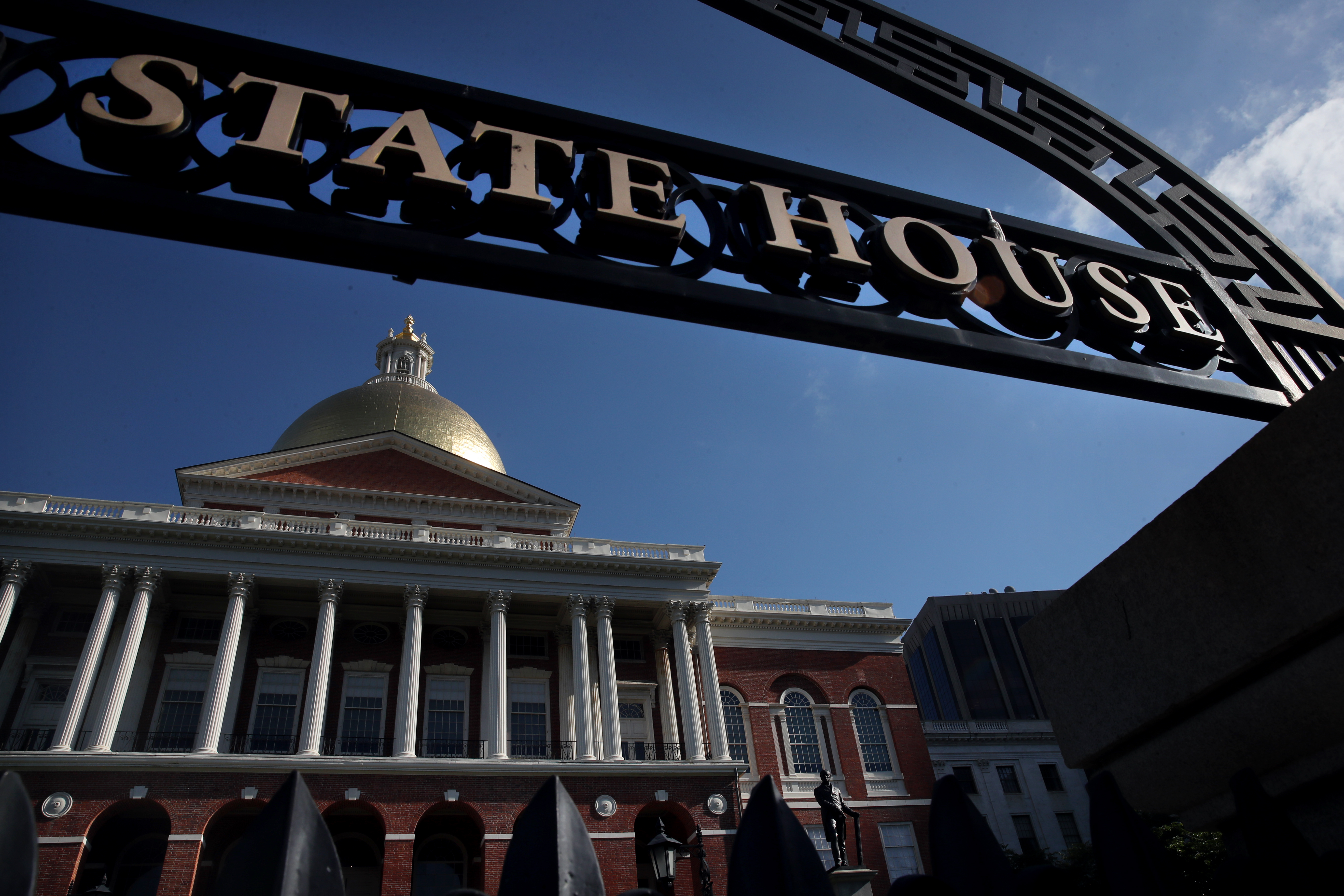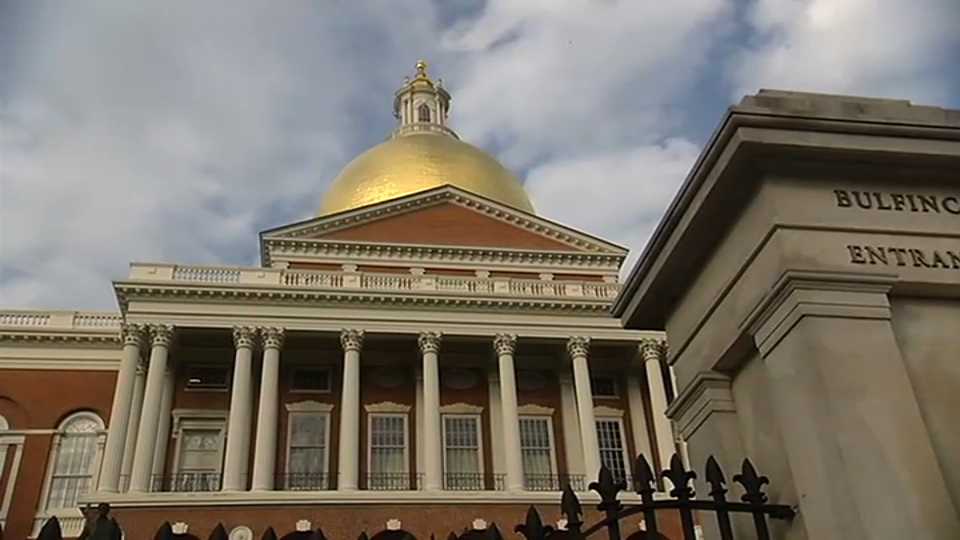Facing resistance from police but carrying momentum from protests and poll results, the Massachusetts House plans to meet for a second day of deliberations Thursday on a reform bill that seeks to certify law enforcement officers and curb use of force tactics like chokeholds and tear gas.
During an 11-hour session on Wednesday, the House adopted six amendments, rejected as many, and withdrew 34, leaving them with 174 amendments still to dispense with. House lawmakers have not publicly addressed a handful of amendments dealing with qualified immunity from civil lawsuits, a topic that triggered a contentious debate in the Senate.
The House on Wednesday voted 83-76 to adopt a Rep. Liz Miranda amendment to only allow the use of no-knock warrants if law enforcement officers have no reason to believe that minor children or persons over 65 are in a home.
Drawing on the stories of Breonna Taylor and Ayanna Stanley Jones, both of whom were killed in their households, Miranda argued that the amendment would save lives and called such warrants an "oppressive tactic."
"This is one more step toward justice. And I know change is hard but we have this opportunity and the moment is now, right now, to prevent the murder of any more Black and Brown sons, daughters, nieces, nephews and partners," she said during a floor speech. "I want you to take a moment to let that all sink in. All we need is the political will and the courage to make the right decision and be on the right side of justice today."
Rep. Timothy Whelan (R-Brewster) opposed the amendment, saying that further restricting the use of no-knock warrants puts law enforcement lives in danger. The former State Police trooper recounted a situation where he said he likely would have died if that type of warrant had not been utilized.
Whelan described the incident, telling his colleagues that a no-knock warrant was issued because a man suspected of pistol-whipping convenience store clerks had said he would shoot a police officer if he was ever taken into custody.
Describing himself as the first in the door after it was popped, Whelan said the man in question was on a bed and reaching for a weapon when Whelan jumped on his back and wrestled the gun from him.
Black and Latino Legislative Caucus Chair Carlos Gonzalez said he was satisfied with the House's progress on the legislation and cited "passion on both sides" during a debate before the vote on Miranda's amendment.
More on the Police Reform Bill
"I think we've been able to move some of these amendments favorable on our side. I think the limit to the banning of no-knock warrants was a fairly good amendment," he said after the session. "This one was a little bit different, it was protecting women and children in a home, when known. And I think there was obviously the sensitive side to that which was able to bring the bill over the top."
With election season approaching, the group Progressive Mass attempted to publicly shame opponents of the Miranda amendment, tweeting a copy of the roll call vote and describing the "no" votes as "truly despicable."
Rep. David LeBoeuf of Worcester had an incredulous reaction to the vote on Twitter.
"How in MA can we legislators be so divided over an amendment to make sure children and seniors aren't home during a no knock warrant. This isn't even banning them! My friend and classmate @RepLizMiranda you are leading the right side of history," he tweeted.
Miranda relished the narrow win, tweeting "the closer the game, the sweeter the victory" and reflected on her feelings after the vote.
"I've been through a great deal in my life & in my short time in the legislature. I take it all w/ grace, but today after that vote I walked in the House bathroom, shut the door & cried. Black women shoulder so much. & in spaces like gov't its much heavier," she tweeted.
On Thursday morning, Miranda urged people to keep pressure on lawmakers. "Spend less time on Twitter today y'all and calling and writing your electeds like those who don't want reform in public safety," she tweeted.
Wednesday's deliberations followed a well-attended press conference by police chiefs on Tuesday in Framingham where the police railed against the Legislature's approach and expressed support for Gov. Charlie Baker's bill.
Massachusetts Chiefs of Police Association President Jeff Farnsworth said the bill is "nothing more than a knee-jerk reaction to the events happening hundreds of miles away from here."
"These bills are not a response to any current situation in Massachusetts," said Farnsworth, the police chief in Hampden. "These bills are being used to make a political statement. They do not address issues in Massachusetts."
It appears that House leaders are trying to address the mountain of unresolved amendments by crafting a large, consolidated amendment, which would dispense with many of the amendments filed.
Rep. Paul Tucker appeared on Wednesday to take a swipe at the Senate for passing its version of police reform after 4 a.m. last Tuesday, following a 16-hour session and criticism about a lack of transparency.
"The House has listened. The voices of all have been heard," Tucker, a former Salem police chief, said Wednesday. "More thought and input has gone into this bill as we debate and we will vote with the sun shining and people watching."
Baker filed his own police accountability and certification bill in June and told reporters on Wednesday that it benefited from more than a year of development and discussions.
"My hope is that as this process goes on with the Legislature that we get a workable and credible accountability and transparency system with respect to law enforcement that comes out of this process," he said Wednesday. "There's a lot of elements there in the House. There are a lot of elements there in the Senate."
The Legislature decided not to hold a public hearing on Baker's bill before drafting their own more expansive proposals.
Baker said Wednesday he wants a bill that "people can actually understand how it's going to work, what it's going to mean, what the consequences are going to be not just for individuals, but also for cities and towns, for communities, for the public at large, for the Commonwealth."
Under current legislative rules, formal sessions are scheduled to end on Friday, July 31, which means the bill could die if Baker returns it with an amendment or a veto after lawmakers have finished formal business. But the governor has also said he shares the goal of reaching a final agreement this month.
On Wednesday, the News Service reported that top Democratic legislative leaders are considering various ways to extend formal sessions this year so that they can continue deliberations on major unresolved matters.



